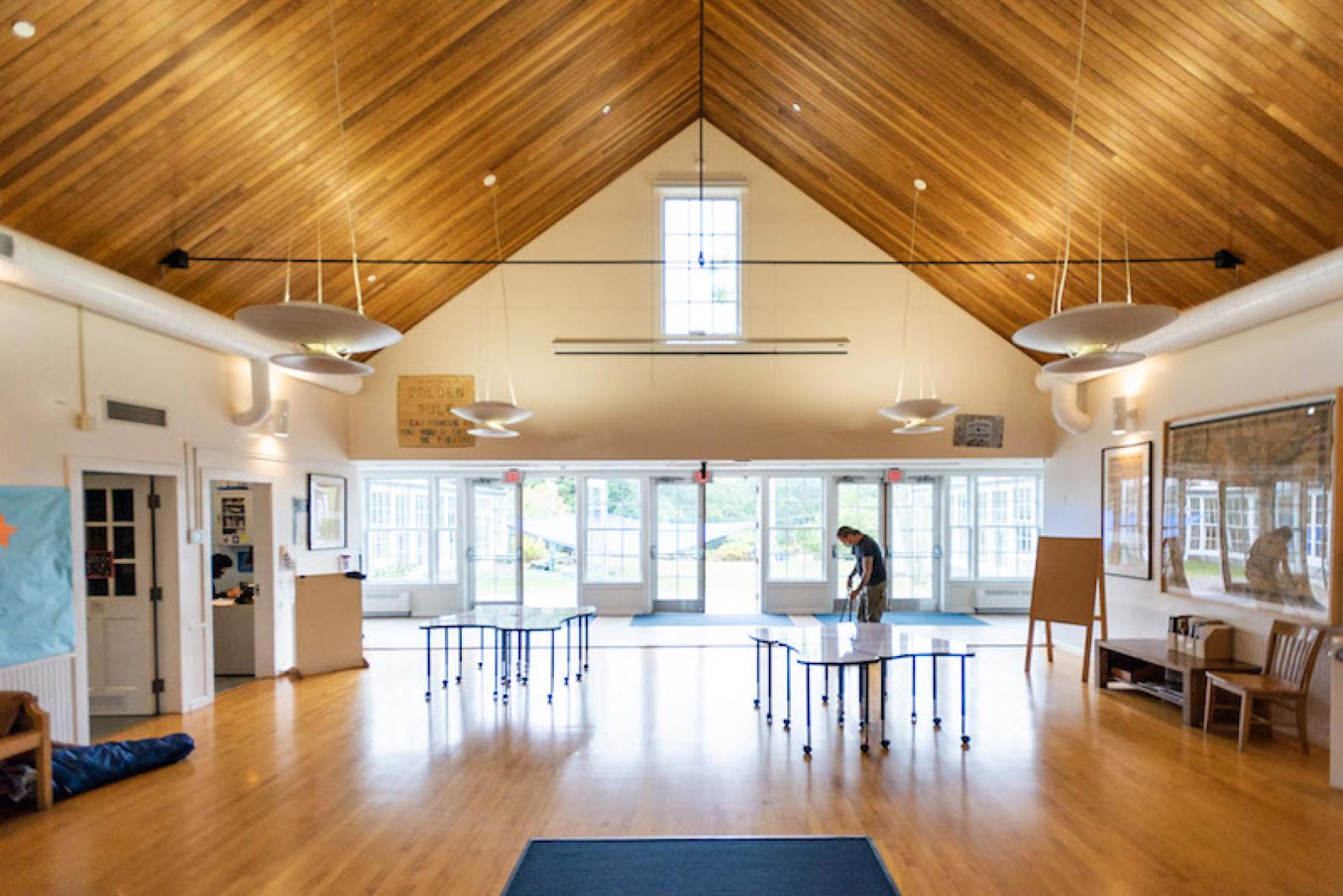After months of planning, the all-Island school committee agreed Thursday to scrap plans for a school-wide testing program and start over, heeding recommendations from a school-appointed testing task force.
Plans for a public school testing program have been in works since early in August, when Dr. Jeffrey Zack, hospital physician and medical advisor on school reopening, first raised the proposal at a committee meeting. The plan won the backing of the committee multiple times this summer, but since August has been stalled by lingering questions about program costs, administration and implementation.
In September, superintendent of schools Matthew D’Andrea appointed a testing task force — composed of Island health agents, school committee members and medical professionals — to move the plan forward.
Last week, the school committee voted to approve the most recent iteration of the plan, which called for a $150,000 contribution from Island schools, split among districts by enrollment. Local school committees Islandwide were set to vote on the funding at their next meetings.
But in a twist Thursday, the task force announced a change in direction, citing recent national research indicating that certain rapid-pool testing regimens — like the one proposed in the plan — can be unreliable.
During the meeting, school committee member Amy Houghton spoke on behalf of the task force, sharing plans to revise the testing plan with input from off-Island infectious disease experts. Ms. Houghton said the new plan would also be guided by successful testing models used at other commonwealth schools. Formal fundraising for the program would be held in conjunction with MV Bank if needed, she said.
The shift in plans was well received by most committee members, many of whom had previously expressed discomfort over the substantial expenses required of Dr. Zack’s plan, estimated at around $650,000. Committee members also endorsed the decision to consult off-Island medical experts.
Echoing the feedback, high school committee chairman Kimberly Kirk urged the committee to take time to weigh the benefits and drawbacks of school-wide testing more generally.
“I appreciate all that Jeff Zack has done to get us to this point to start thinking about how this can be incorporated into our re-entry programming,” Ms. Kirk said. “I would like to request that, whether it be the task force or our administration, we reach out to someone who can talk to us about what testing means, realistically.”
In other business Thursday, the committee took up the question of diversity, equity and inclusion policies and ongoing anti-racist work in the public schools.
The topic was raised by committee chairman Robert Lionette, who called attention to a recent resolution on social and racial justice from the Massachusetts Association of School Committees that has been passed by nearly all commonwealth school committees this year.
Building on the MASC resolution, Mr. Lionette invited school administrators to present on anti-racist initiatives currently undertaken by the schools.
High school principal Sara Dingledy called on administrators Dhakir Warren and Amy Lilavois to discuss new professional development opportunities and student-led social justice initiatives underway at the high school. Assistant superintendent Richard Smith and the director of English Language Learning services shared updates on the school’s entry into the Culturally Responsive Practice Leadership Academy.
All stressed the importance of ongoing anti-racist work at the Island level.
“Silence is most deafening when it comes to issues of race and inequality,” said Mr. Warren during the presentation. “I really do hope that you, as school committee members, and fellow administrators across all of our Island schools will participate and support these ongoing conversations, and educational opportunities.”
After the presentations, community members gave an outpouring of thanks to administrators and teachers for their ongoing work. But many in the audience questioned why discussions of race had been neglected at committee meetings for much of the summer.
“I look at this committee, and I really can’t tell . . . but it actually looks like a quite homogeneous committee,” said one parent, Patty Favreau. “I can’t help but ask myself, if maybe the sense of urgency and the desperation and the fear around topics of race for families of color would have been more present in the conversation, even amid Covid if the committee itself was a bit more diverse.”
Mr. Lionette said he planned to regularly incorporate anti-racist policy discussion into the school committee agenda, beginning with a possible vote on the MASC resolution at the next meeting.
“I think we need a space to enter these discussions,” said Mr. Lionette. “They’re not easy. We have not done well all the time on discussions of social justice and race, but it’s important to have.”
In final business, the committee went into an hour-long executive session to finalize a memorandum of agreement regarding teacher contracts for the remainder of the school year. After weeks of closed door negotiations, the MOA was passed by the Martha’s Vineyard Education Association last week.
Returning to public session, the committee voted in favor of the lengthy document 9-0-1, with Jennifer Cutrer abstaining.






Comments (17)
Comments
Comment policy »